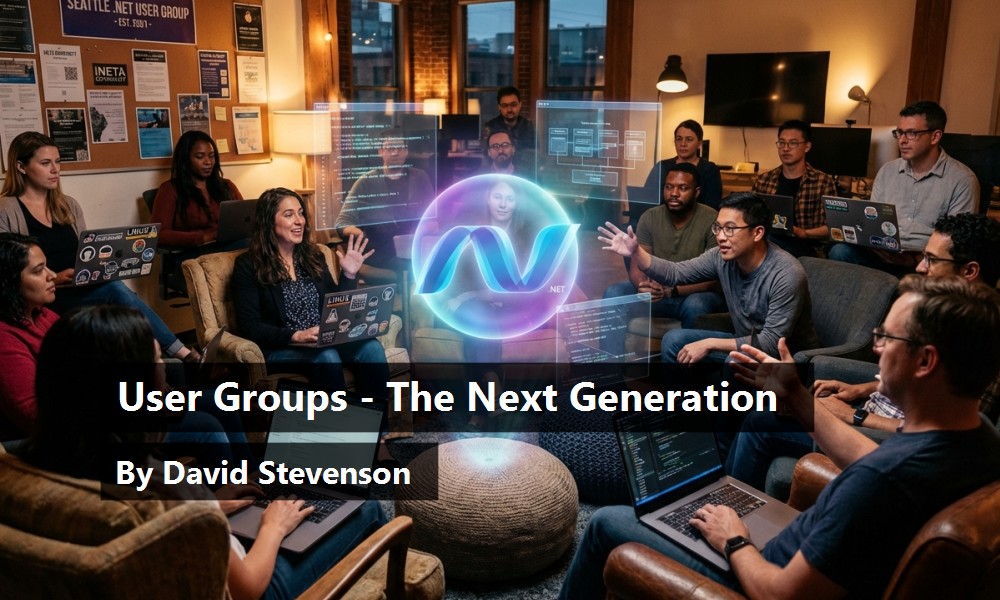All this recent talk about Microsoft reaching out to encourage the development of “developer communities” has started me thinking again about user groups and forums, online support sites and the need for encouragement during periods of dramatic technological change.
I've been involved with some form of computing since the early days of kit computers, Radio Shack TRS-80s and the early IBM PCs. In those days, the computing pioneers in various areas met regularly in hobbyist groups or on dial-up bulletin board systems to discuss the latest software patches or to show off cool programming tricks to each other.
Everything about personal computing was new and very few people were experts. As a result, there was a noticeable feeling of camaraderie and adventure among those brave souls who dared to leave the security of manual ledger books and run their companies on the new (and hardly reliable) personal computers.
.NET: Everyone is a beginner
From time to time, a technological shift occurs that is more than just a course correction, a set of enhancements or a minor adjustment. .NET is that kind of technological shift for Microsoft-oriented developers, and it has affected everyone in the industry, from beginner to expert.
That fact is, the changes brought about by .NET have proven to be “the great leveler,” reducing yesterday's experts to babbling beginners. (You may not have actually seen and heard the babbling, but you can be sure that even the most skilled conference speakers, teachers and writers have all had their share of “duh” moments recently.)
The more adventurous ones have jumped right into the early betas, done their homework and paid their dues all over again, to keep their place on the front lines and lead the charge to conquer this new “thing.”
Today, there are amazing quantities of detailed information available about .NET, including magazines, books and a proliferation of online resources. However, those cannot completely replace the need for group learning experiences and person-to-person encouragement.
The result of this phenomenon is a sudden wave of new .NET user groups springing up all over the world, accompanied by a resurgence in attendance at many of the older, well-established groups. Some of the larger groups in major cities are already well on their way to 1,000 members, as developers realize they can benefit greatly from personal interaction with their peers.
INETA steps forward
Although Microsoft has supported user groups in a variety of ways over the years, the new wave of .NET groups has coincided with the start of a new “umbrella” group for coordinating support and providing guidance. INETA, the International .NET Association, was started with Microsoft's blessing by Bill Evjen, leader of a user group in the Midwestern United States.
Bill told me that he realized that other user group leaders probably were facing the same challenges he was, so he went to Microsoft with a proposal for an organization that would help new groups with organizational ideas and a pool of expert speakers. Sufficiently impressed with his ideas, Microsoft told Bill, “You're it!”
With the help of volunteers like Brian Loegsen and the full support of the Redmond mother ship, Bill has made a great start with preliminary organization, including a meeting of user group leaders at TechEd in April to get their input on charting INETA's course.
This fall will see the selection of leaders and the expansion of the group's resources, and we will keep you informed about this interesting development in community-building. More details are available at www.ineta.org.
Welcome, new readers!
As CoDe Magazine continues to surge forward in a steady growth spurt, we want to never lose sight of the importance of each and every subscriber and reader, whether you are an old friend or have just discovered us on the newsstand, online at www.devx.com, or at a conference or user group meeting.
Our pledge to you is that we will continue to publish the best in-depth technical articles we can get our hands on, mixed in with sound application architecture advice and insightful commentary. Stay with us as we all learn together (and please introduce us to all your friends!).
David Stevenson






